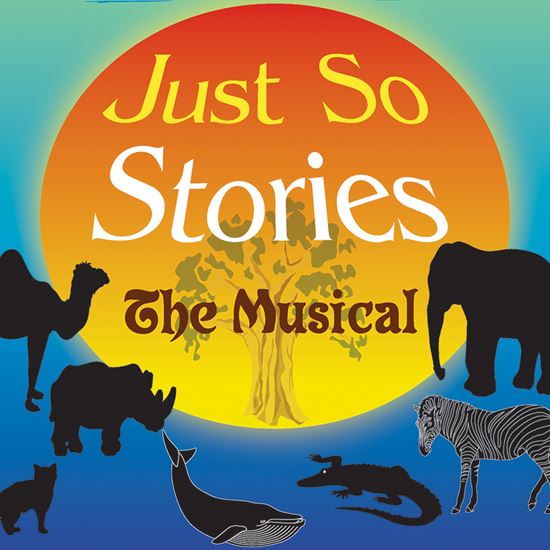
Just So Stories
Rudyard Kipling's dramatic and entertaining stories about how the Camel got his hump, how the Elephant got his nose, how the Whale got his spout, and other richly woven tales come to life in this engaging musical. Mr. and Mrs. Kipling and their two bubbly yet unpretentious daughters serve as narrators. The story weaves from animal tales to the final human one, how Man--or in this case an enterprising young girl!--wrote the first letter. Especially engaging is the two-person whale which is a great theatrical device. The show opens with the song, "When the World Was Brand New," and features other humorous and rhythmic tunes as "The Whale With a Whale of an Appetite," "An Elongated Nose that Looks Like a Hose," and "Firstest Friends." Easy to produce, this whimsical musical is sure to charm everyone. (Non-musical version available as "Kipling's Just So Stories.")
Productions
Behind The Scenes
Playwright R. Rex Stephenson
and Composer Emily Rose Tucker
Talk About the "JUST SO STORIES"
Q.:WHAT INSPIRED YOU TO ADAPT KIPLING'S WORK INTO A MUSICAL?
A.: I have always been a big fan of Kipling's because his stories are so well plotted and have such wonderful use of language. I can adapt the material and still stay very true to the author's intent.
Q.: WHAT'S YOUR FAVORITE PART OR LINE IN THE MUSICAL? WHY?
A.: The two-person whale is a great theatrical device, and when he sings "I am a Whale that loves to eat..I find eating a virtue," I always think about how I love to raid my refrigerator at 10 o'clock at night.
Q.: WHERE DID SOME OF THE CHARACTERS COME FROM?
A.: Basically, I tried to stay true to the characters the author created. However, for the Kipling family, I wrote them for the four people who originally performed the show. Joe Ray and Jody Brown had the mature qualities, plus a twinkling kind of wit that I imagine Mother and Father Kipling would have possessed. The girls' parts were originally performed by Emily Rose Tucker, (composer of the musical version), and Chandra Diesel, and they are both bubbly and unpretentious actors, as I envision Kipling's children.
Q.: TELL US MORE ABOUT THE SONGS
A.: From the composer, Emily Rose Tucker. One of the joys of the musical for me, is that the lyrics provided by Stephenson and Kipling provided great opportunities for interesting and exciting music. The cast that originally performed this play was constantly trying to decide on a favorite song, and I attribute this to the rhythmic quality of the lyrics, and the humor that they add to each scene.
Q.: WHAT DID YOU TRY TO ACHIEVE WITH THIS MUSICAL?
A.: In all my adaptations I hope to interest children and adults enough in the piece that they will go check the book out of the library and read it. I don't think some of the movies that have been made, supposedly based on Kipling's work, have helped to keep this author's work alive. I guess as a child, I loved books by Robert Lewis Stephenson, Kipling, Dickens, and Twain, and I always hope my adaptations will help kindle the same kind of love for these authors in children today.
